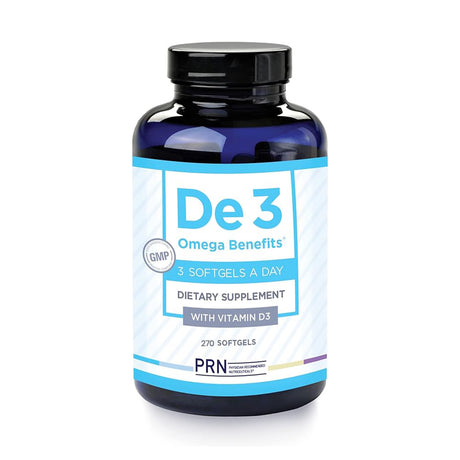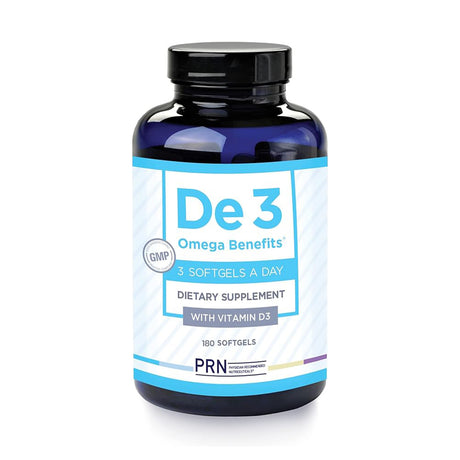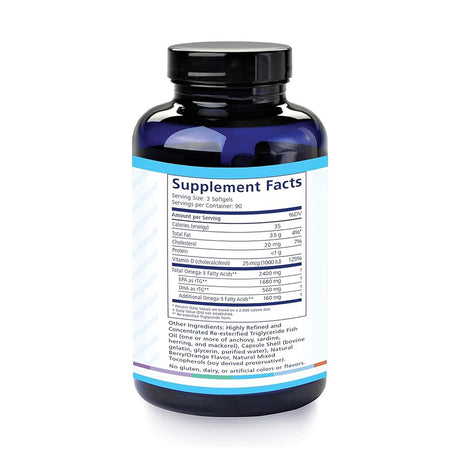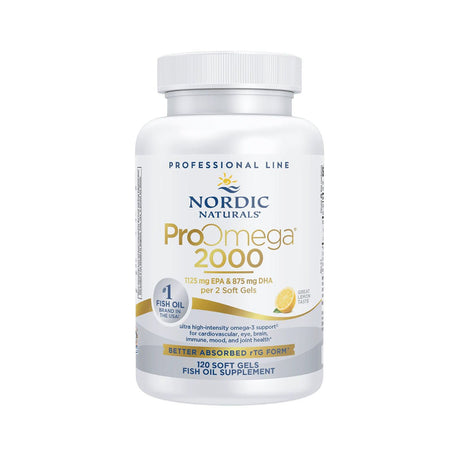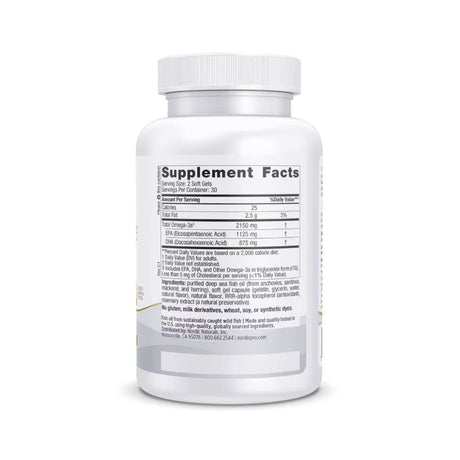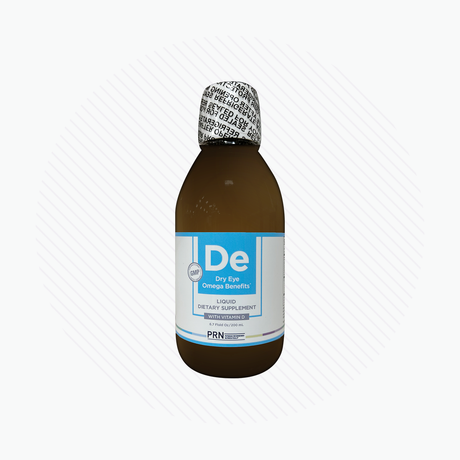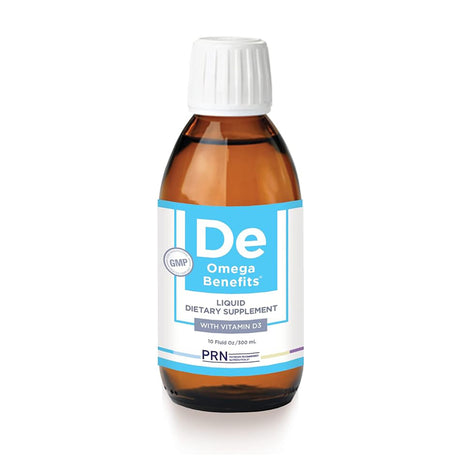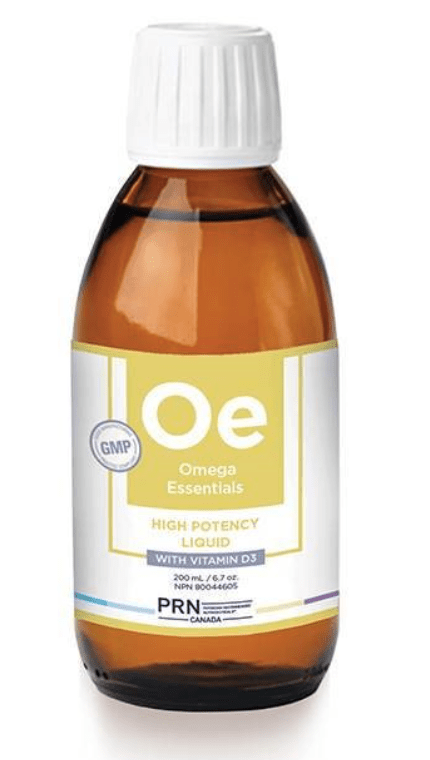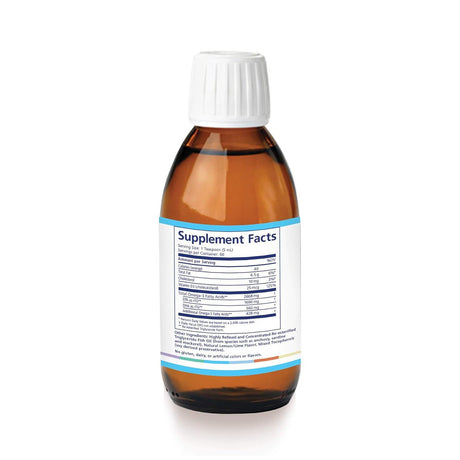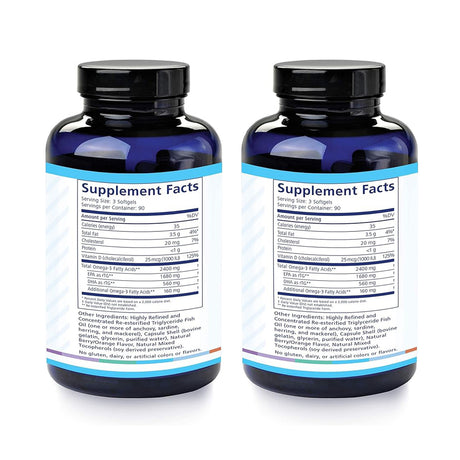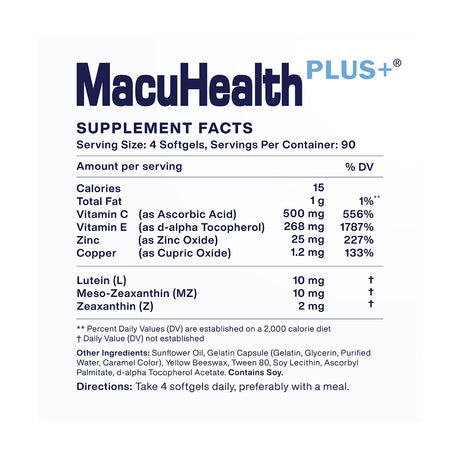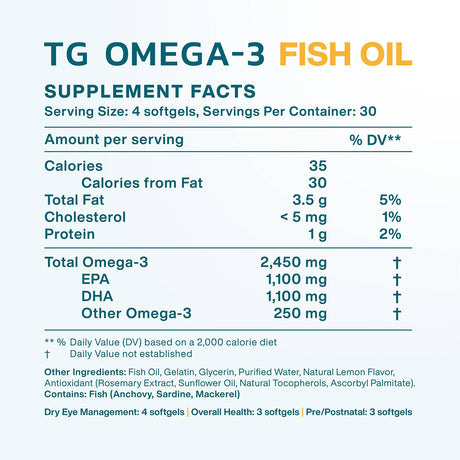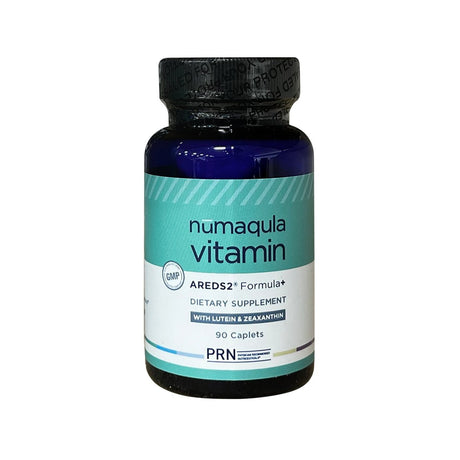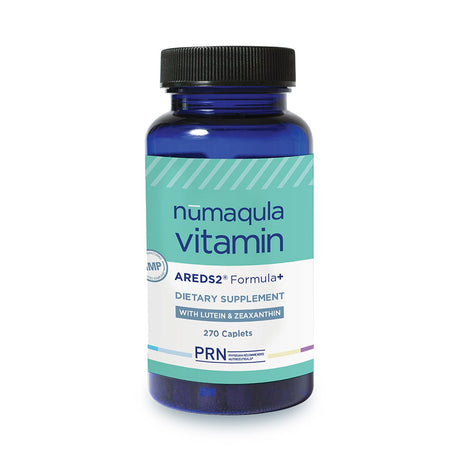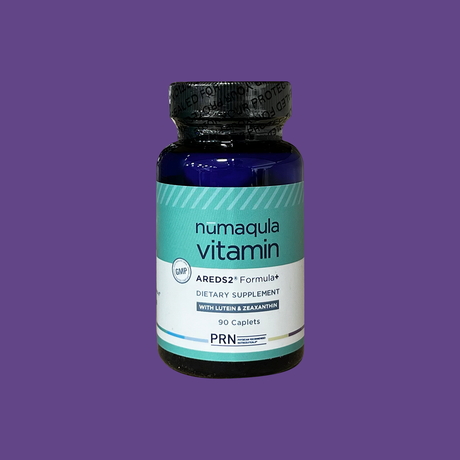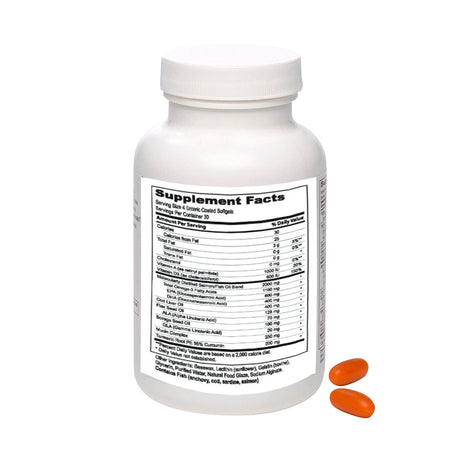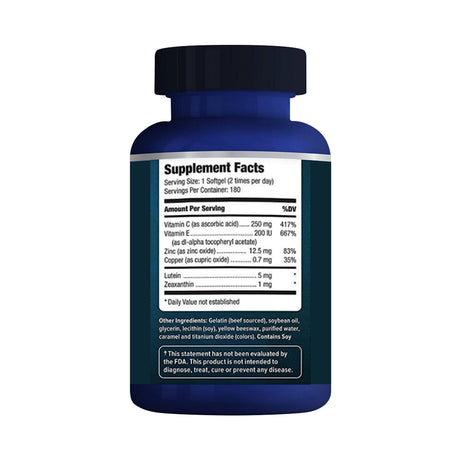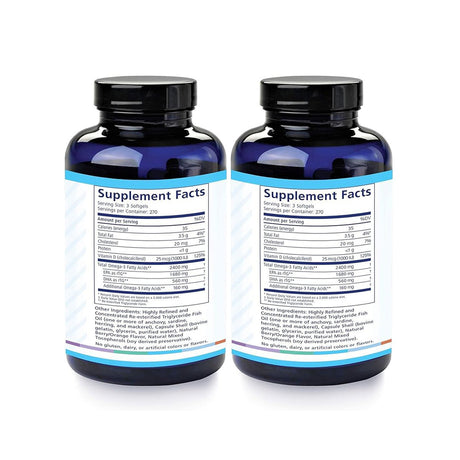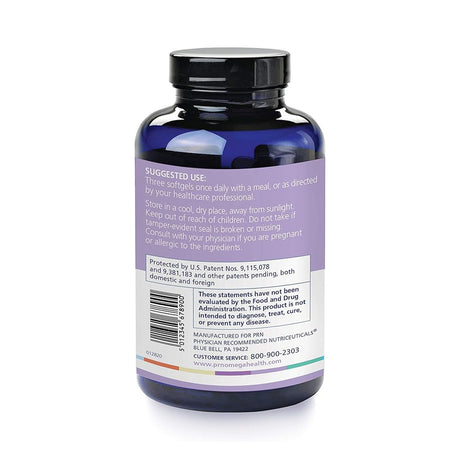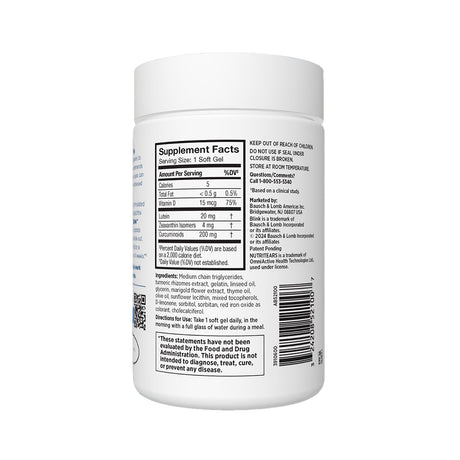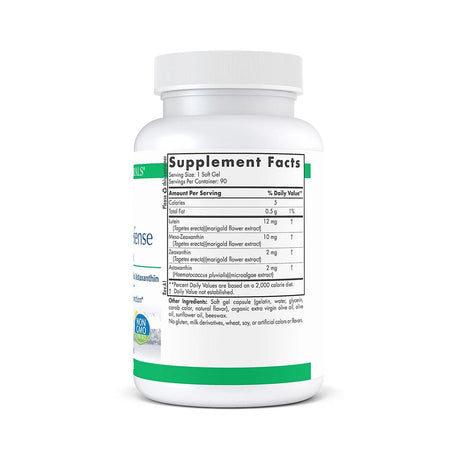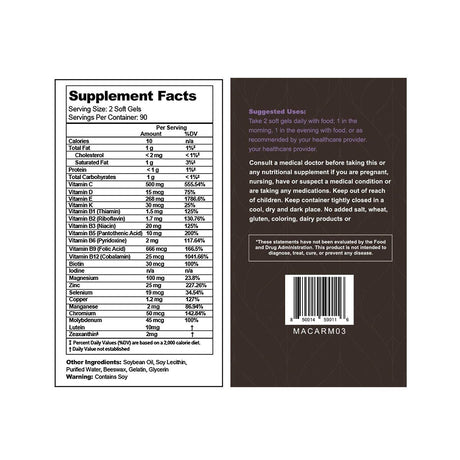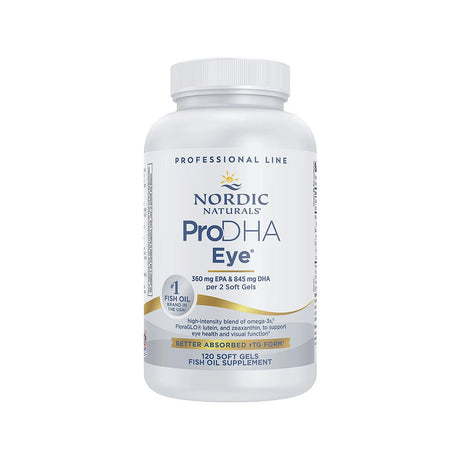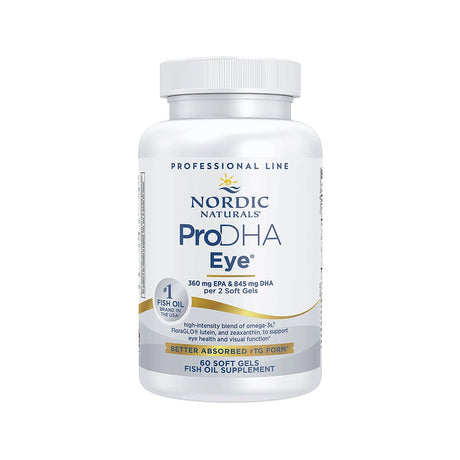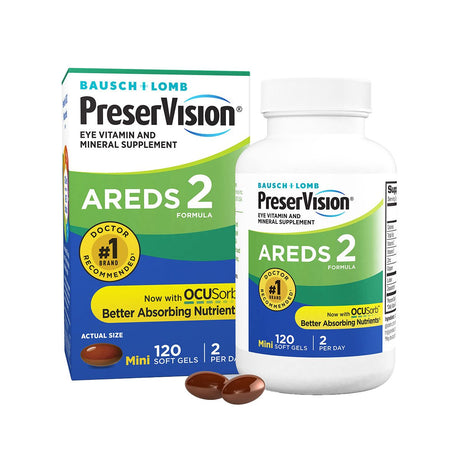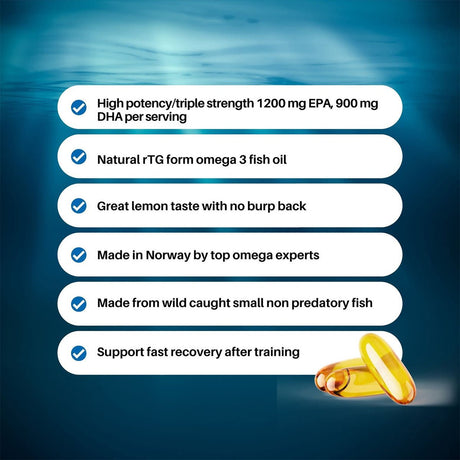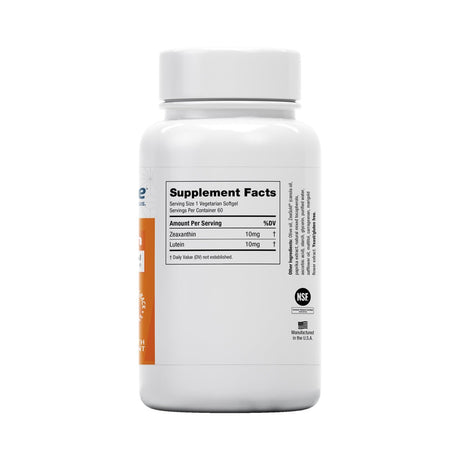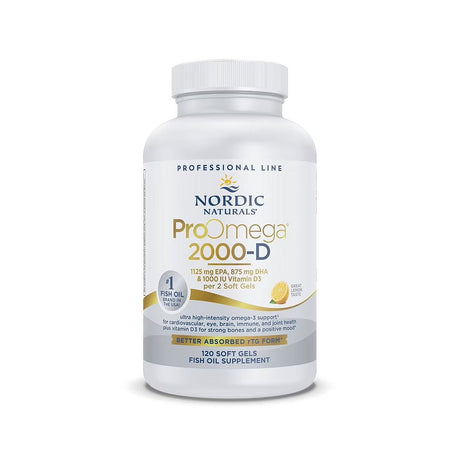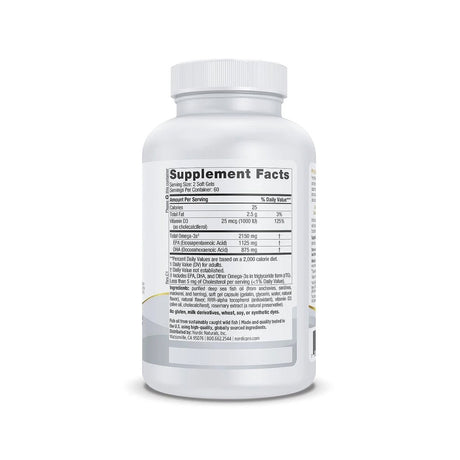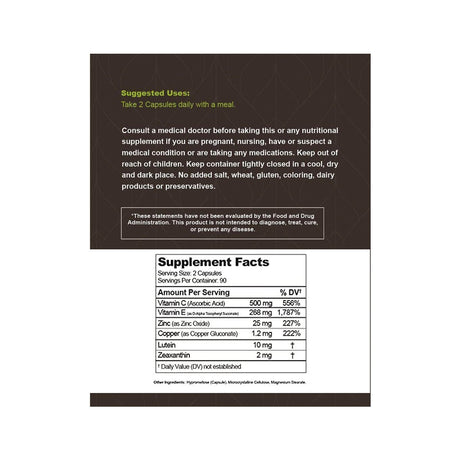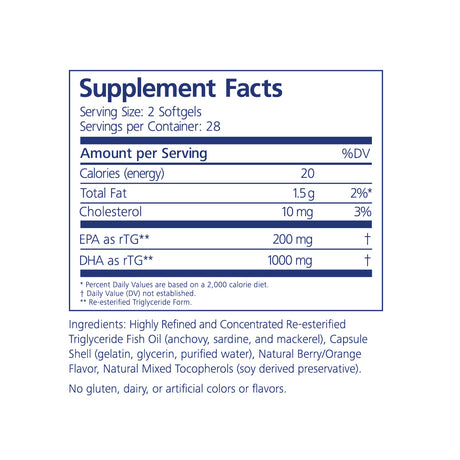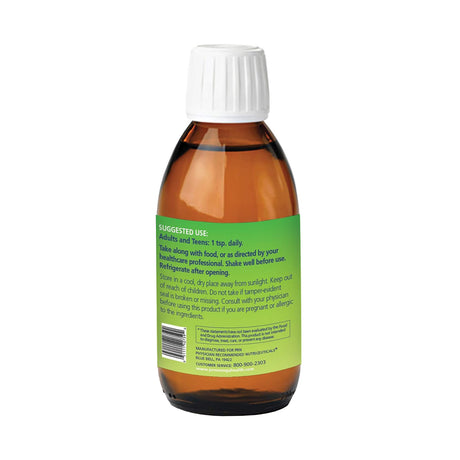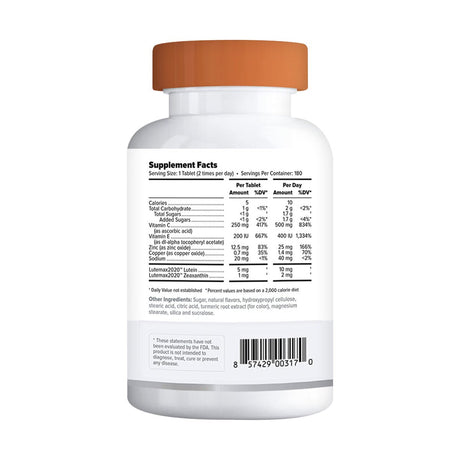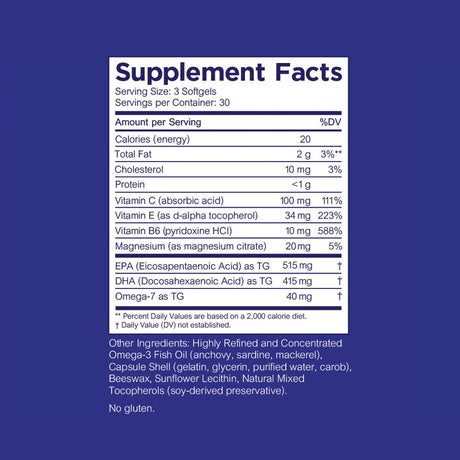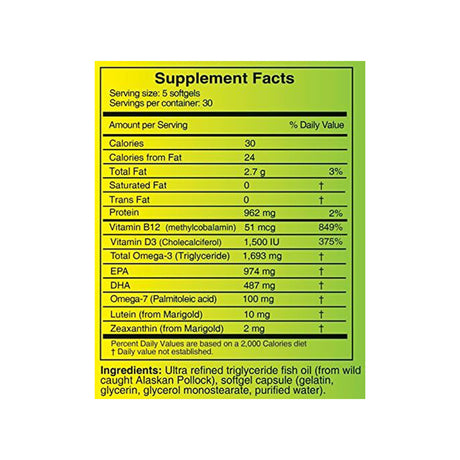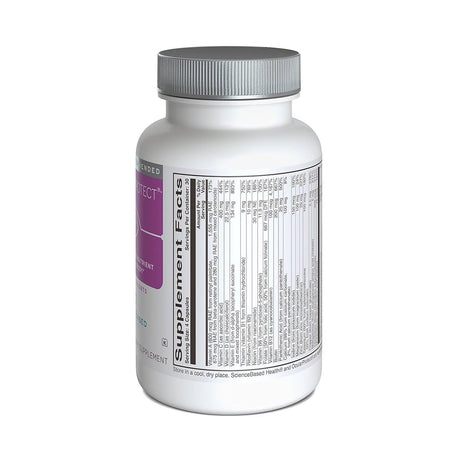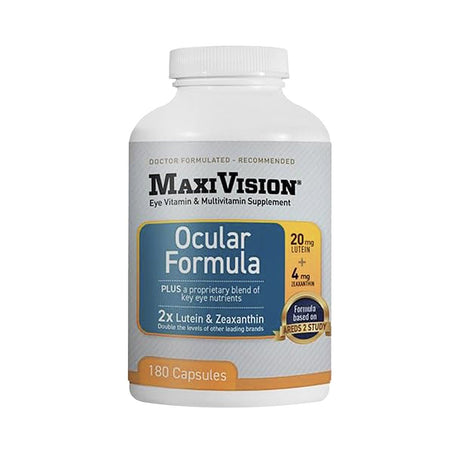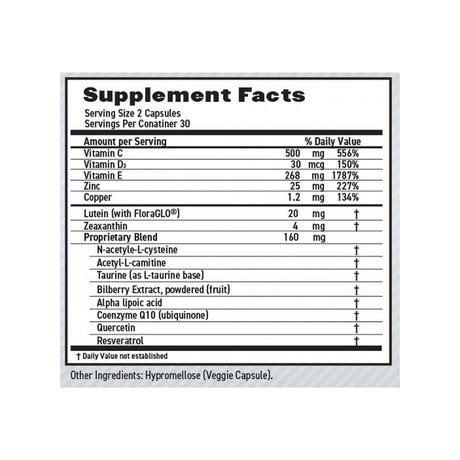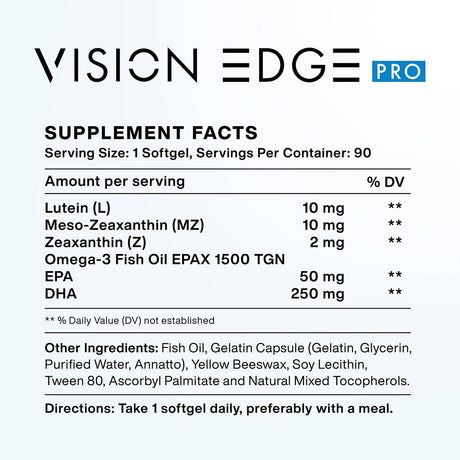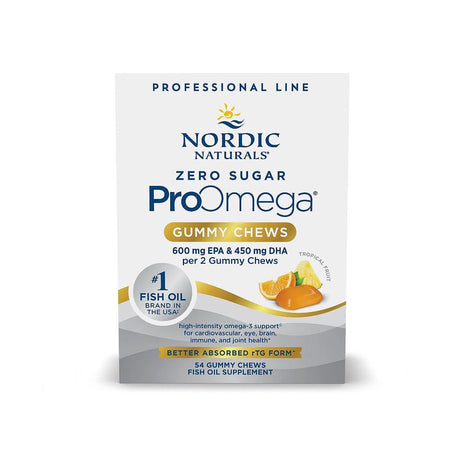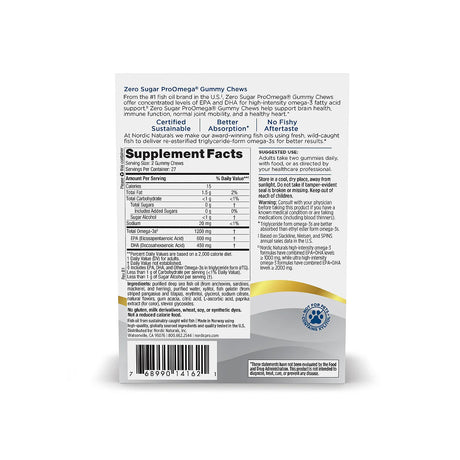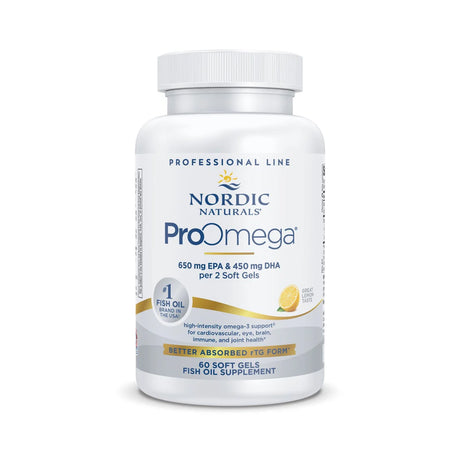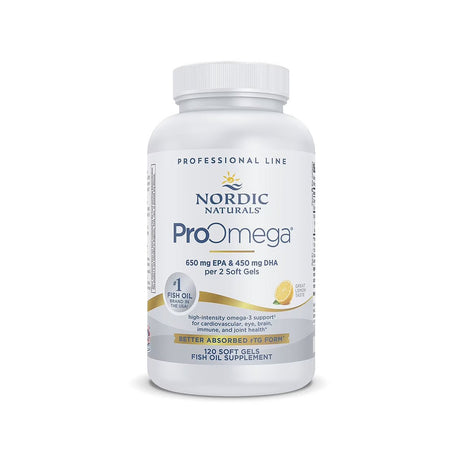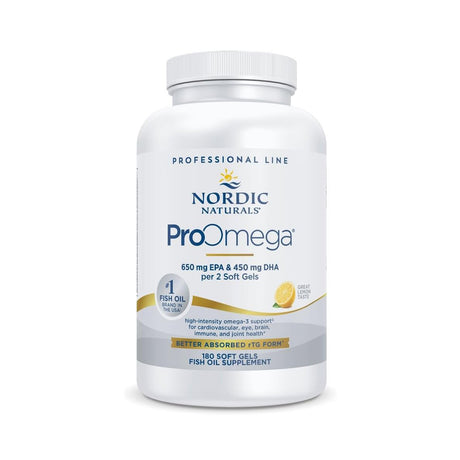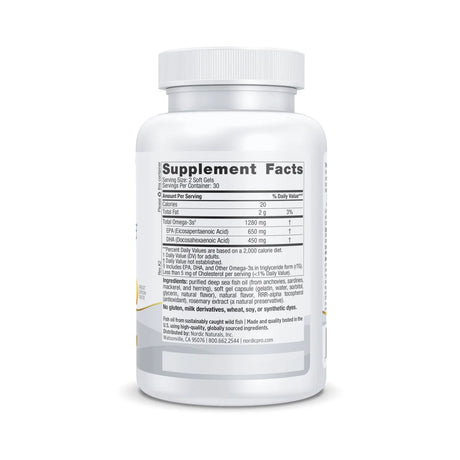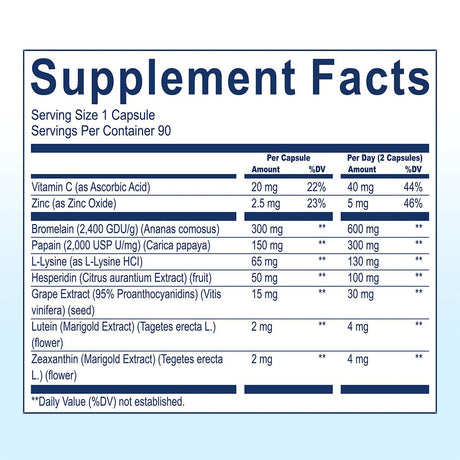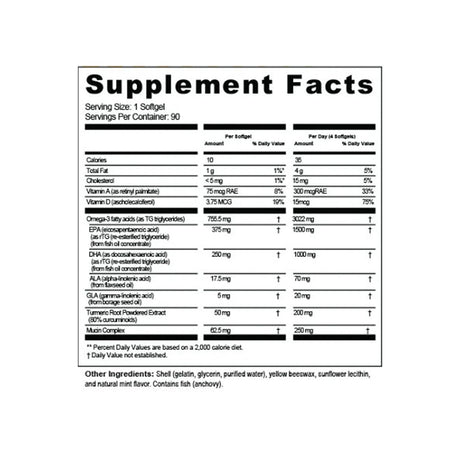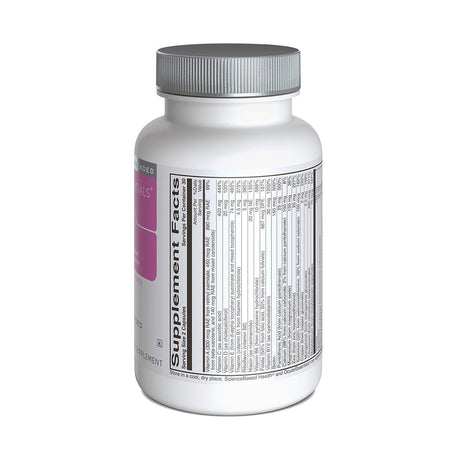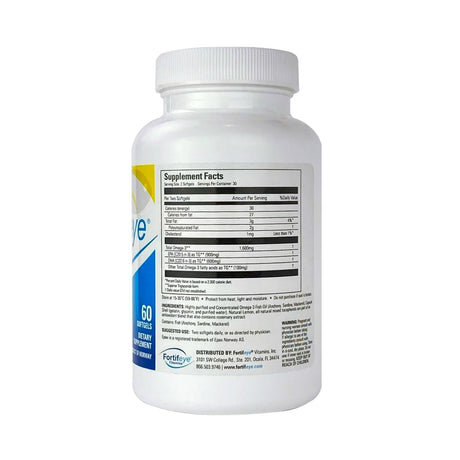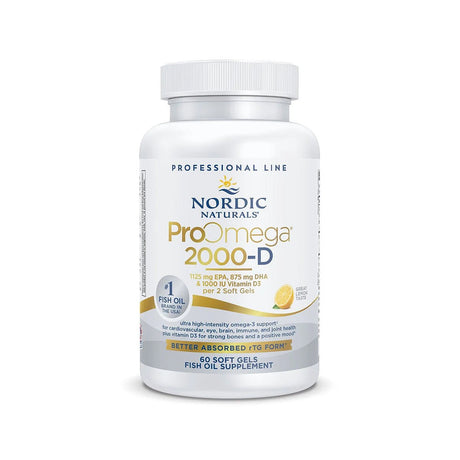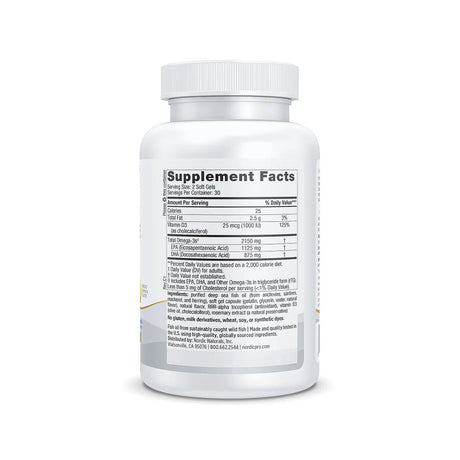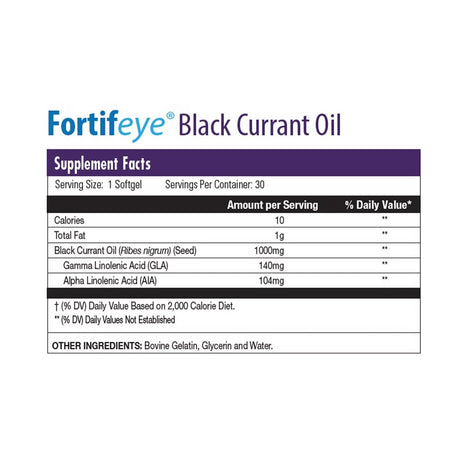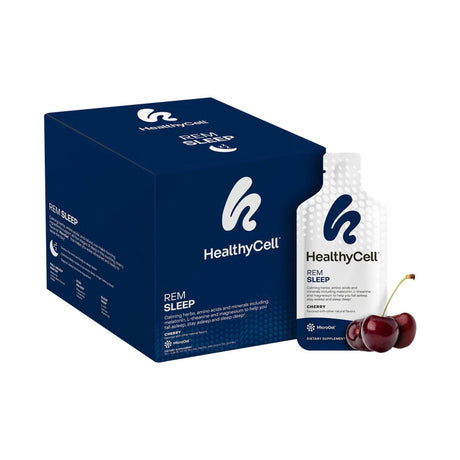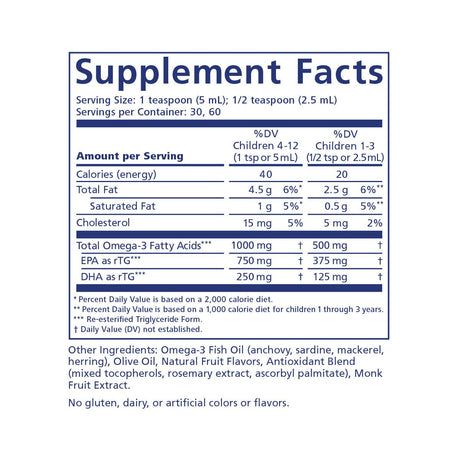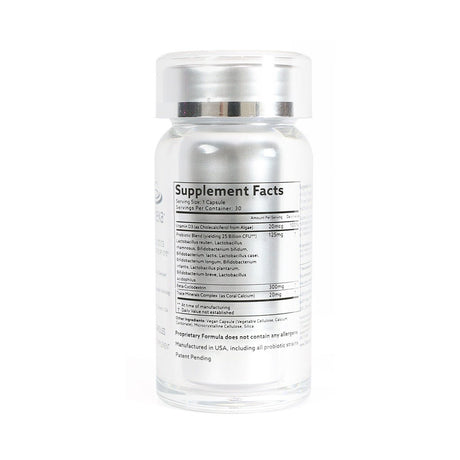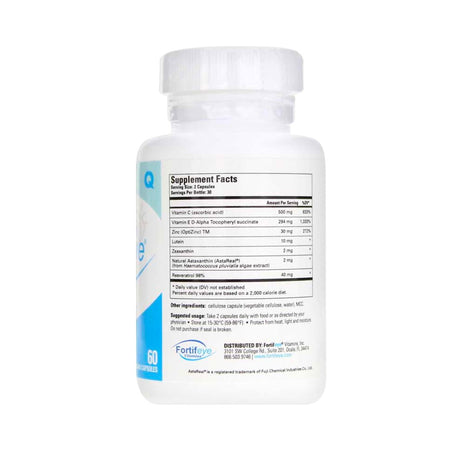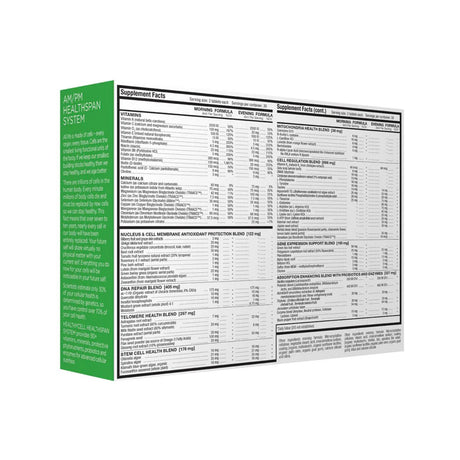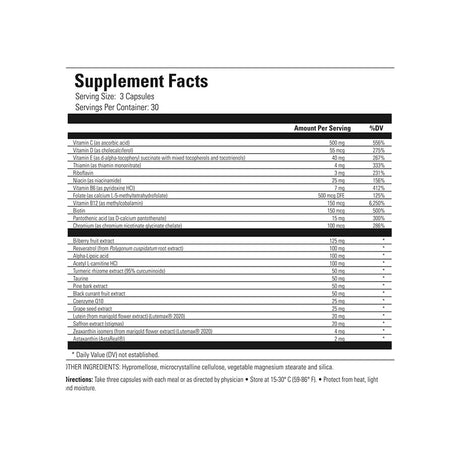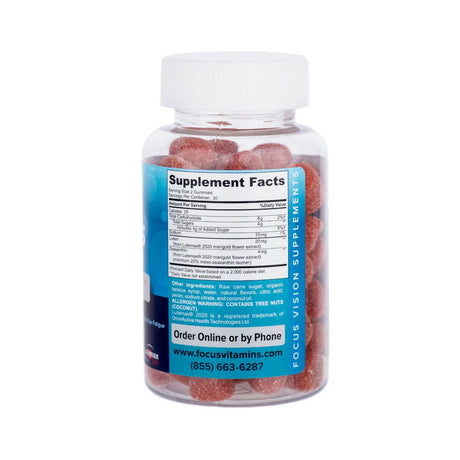Vitamins & Supplements
PRN - Physician Recommended Nutriceuticals
PRN DE3 Dry Eye Omega Benefits® (90/180/270ct. 1-3 Month Supply)
From $67.75$71.99Unit price /UnavailableNordic Naturals
From $46.13$52.95Unit price /UnavailableMacuHealth
VitreousHealth by MacuHealth - Eye Floaters Formula (90ct - 90 day supply)
$67.95$69.99Unit price /UnavailablePRN - Physician Recommended Nutriceuticals
PRN Dry Eye Omega Benefits® Liquid (1.3 and 2 month Sizes)
From $79.95$99.99Unit price /UnavailablePRN - Physician Recommended Nutriceuticals
PRN DE3 Dry Eye Omega Benefits® (90ct) 2-Pack, (2 month supply)
$135.50$139.99Unit price /UnavailableMacuHealth
MacuHealth Plus+ Eye Supplement for Adults - Meso-Zeaxanthin, Lutein & Zeaxanthin, (90 Days Supply)
$94.95Unit price /UnavailableMacuHealth
MacuHealth Omega 3 Fish Oil - 1100mg of Omega 3, 120 Softgels (30-60 day supply)
$47.95$49.99Unit price /UnavailableFocus Vitamins
Focus Vitamins Focus Relief Plus Omega-3 Softgels (90 ct. 30 Day Supply)
$29.95$34.95Unit price /UnavailablePRN - Physician Recommended Nutriceuticals
From $38.45$39.99Unit price /UnavailableLunovus
MedOp MaxiTears Eye Formula (120 Softgels) 30-Day Supply
$34.95$42.95Unit price /UnavailableFocus Vitamins
Focus Select Supplement - AREDS2 formula for Macular Degeneration (180ct. 90 Day Supply)
$45.95$49.99Unit price /UnavailablePRN - Physician Recommended Nutriceuticals
PRN DE3 Omega Benefits 6 month Supply (2 x 270ct Bottles)
$363.90$399.99Unit price /UnavailablePRN - Physician Recommended Nutriceuticals
PRN numaqula Omega-3 - High Dose Omega Supplement for Macula & Retina Support | 3 Month Supply
$186.25$199.99Unit price /UnavailableBlink
Blink NutriTears supplement for Dry Eyes (50 Softgels - 2 Mo Supply)
$32.95$34.95Unit price /UnavailableOasis Medical
Oasis TEARS Omega 3 | Premium Omega-3 Supplement for Dry Eye Relief and Eye Health (90ct)
$39.95$45.99Unit price /UnavailableNordic Naturals
Nordic Naturals ProMacular Defense (90ct 3 Month Supply)
$53.10$60.95Unit price /UnavailableLunovus
$44.95$54.99Unit price /UnavailableNordic Naturals
From $45.26$51.95Unit price /UnavailablePreserVision
PreserVision AREDS 2 Eye Vitamin & Mineral Supplement 120 Softgels
$37.95$39.99Unit price /UnavailableEyePromise
EyePromise Zeaxanthin + Lutein Eye Vitamin - 60 Softgels
$41.95$44.99Unit price /UnavailableNordic Naturals
$84.11$89.99Unit price /UnavailableLunovus
$49.95$54.99Unit price /UnavailablePRN - Physician Recommended Nutriceuticals
$50.55$59.99Unit price /UnavailablePRN - Physician Recommended Nutriceuticals
PRN Omega-V Benefits Liquid (5 oz) Vegan Formula
$60.25$69.99Unit price /UnavailableFocus Vitamins
Focus Select Citrus Chewable AREDS2 Based Formula (90-day Supply)
$51.95$54.99Unit price /UnavailableOcuSci
OcuSci Ultra Omega Support 2-Month Supply (180ct 2-month Supply)
$99.95$100.00Unit price /UnavailableScienceBased Health
OcularProtect Whole Body Multivitamin Formula (60 day Supply)
$39.95$53.99Unit price /UnavailableMacuHealth
MacuHealth Vision Edge ECP Pro for Visual Enhancement - 90 Day Supply
$88.95$94.99Unit price /UnavailableNordic Naturals
Nordic Naturals ProOmega Gummy Chews, No Sugar, 54 Pack
$38.21$44.95Unit price /UnavailableNordic Naturals
Nordic Naturals ProOmega, Lemon Flavor, Omega Supplement (3 Sizes)
From $29.95$34.99Unit price /UnavailableHaro Health
Haro Clear Eye Floaters and Vitreous Health Formula (90ct)
$44.95$49.99Unit price /UnavailableLunovus
MaxiTears PRO Eye Formula, 120 Softgels, (1 Month Supply)
$55.40$59.99Unit price /UnavailableScienceBased Health
Ocular Essentials Whole Body Formula (30 Day Supply)
$24.95$34.99Unit price /UnavailableFortifeye
Fortifeye Super Omega-3 Fish Oil Omegas (60ct bottle)
$29.95$34.99Unit price /UnavailableNordic Naturals
$51.75$59.99Unit price /UnavailableHealthyCell
HealthyCell REM Sleep Supplement and Sleep Aid (30 Gel Packs)
$59.95Unit price /UnavailablePRN - Physician Recommended Nutriceuticals
PRN Eye Omega Benefits for Kids Omega Benefits for Children’s Eyes (5oz)
$30.75$34.00Unit price /UnavailableZognition
Cydexa Probiotics for Support for Dry Eye Supplement (30 Capsules)
$39.95$52.99Unit price /UnavailableHealthyCell
HealthyCell AM PM Healthspan Vitamins (30 day Supply)
$124.95$129.99Unit price /UnavailableOcuvite
$25.95$26.99Unit price /UnavailableFortifeye
Fortifeye Next Gen Macular Defense Eye ZINC FREE and Whole Body Support (90ct - 3 Month Supply)
$44.95$58.99Unit price /UnavailableFocus Vitamins
Focus Blue Light Mango Flavored Gummies (60ct, 1 Month Supply)
$23.99$29.99Unit price /UnavailableFortifeye
Fortifeye Super Omega-3 Fish Oil (180ct 3 Month Supply)
$79.95$110.00Unit price /Unavailable
Vitamin Therapy Collection
Welcome to our Vitamin Therapy collection, where we explore the essential vitamins that support eye health and combat dry eye symptoms. This curated selection of products focuses on high-quality supplements designed to promote proper tear function and overall ocular comfort. With a solid foundation in vitamin therapy, you can effectively reduce the discomfort associated with dry eyes.
Featured Products
- Omega Fatty Acids (DHA and EPA): Vital for relieving dry eye symptoms, these fatty acids support tear film stability. Consider PRN vitamins for their high concentrations of DHA and EPA.
- GLA Black Currant Seed Oil: Known to enhance eye comfort and reduce irritation, this supplement is essential for those lacking omega sources in their diet.
- Vitamin A Therapy: Crucial for maintaining corneal surface integrity, Vitamin A supports various eye structures and is available in both animal and vegetable sources.
- Sea Buckthorn Oil: This innovative supplement, known for its anti-inflammatory properties, has become a favorite among dry eye sufferers.
- Vitamin D: Important for tear film health, Vitamin D supplementation can significantly improve symptoms of dry eye in deficient patients.
Explore our Vitamin Therapy collection today and discover effective solutions to enhance your eye health and comfort. With the right vitamins, you can maintain optimal tear function and enjoy lasting relief from dry eye symptoms.


